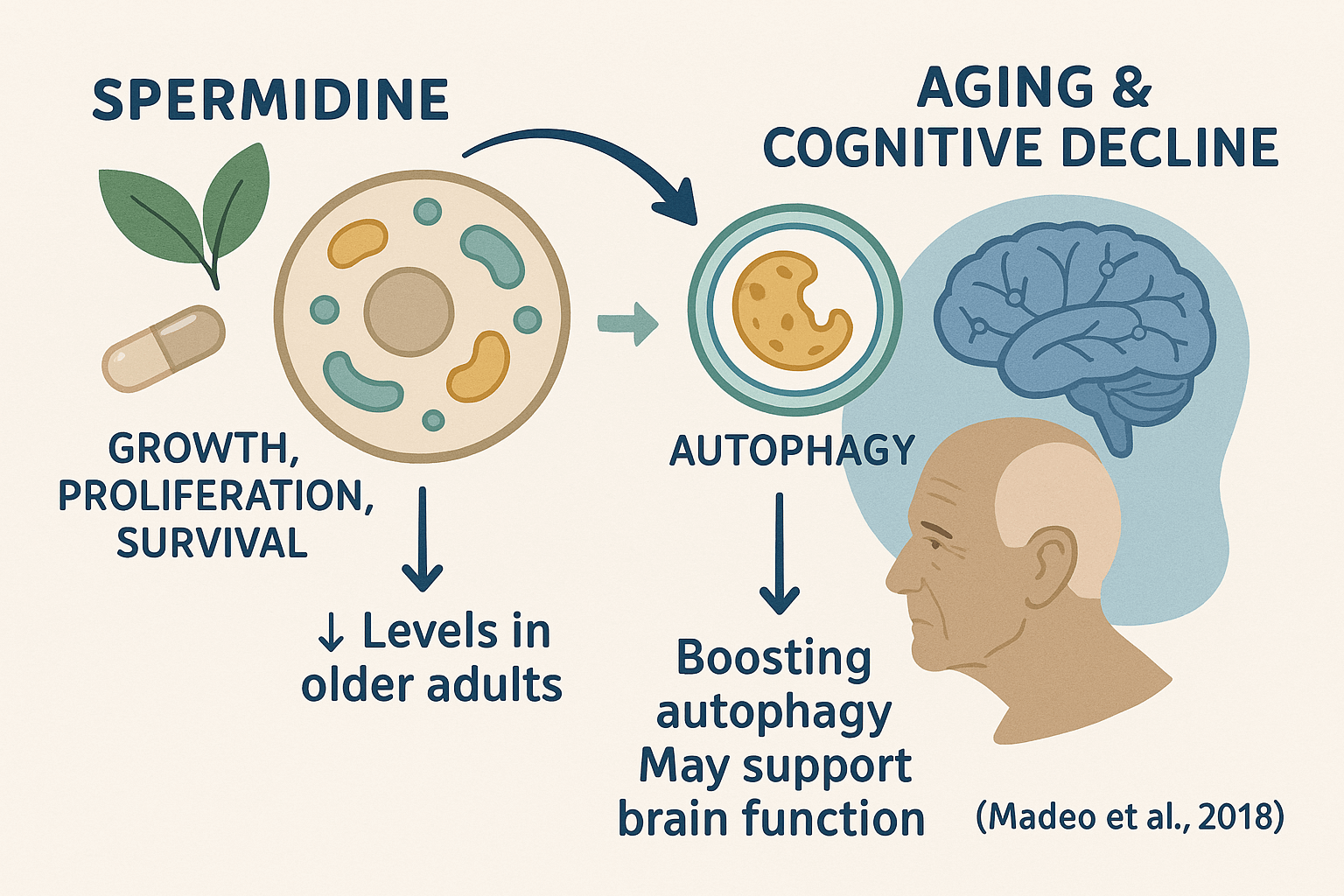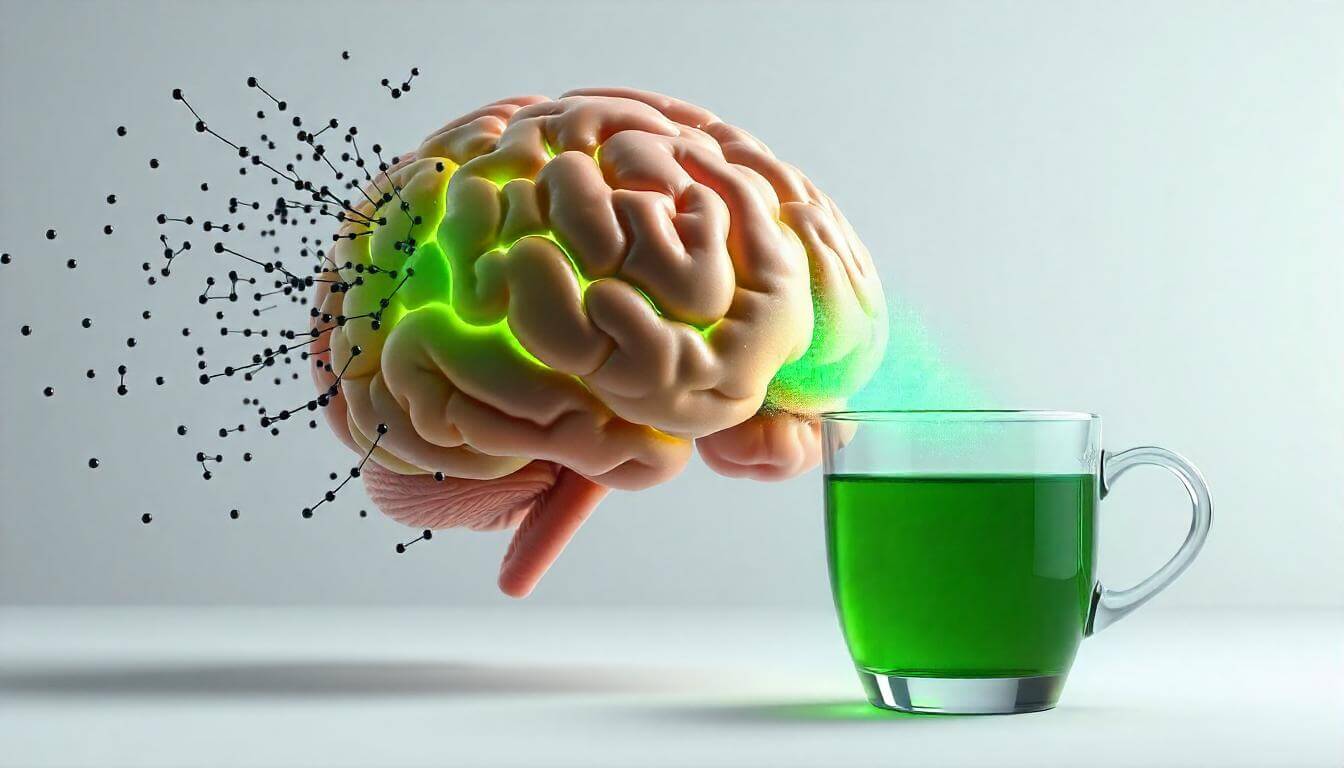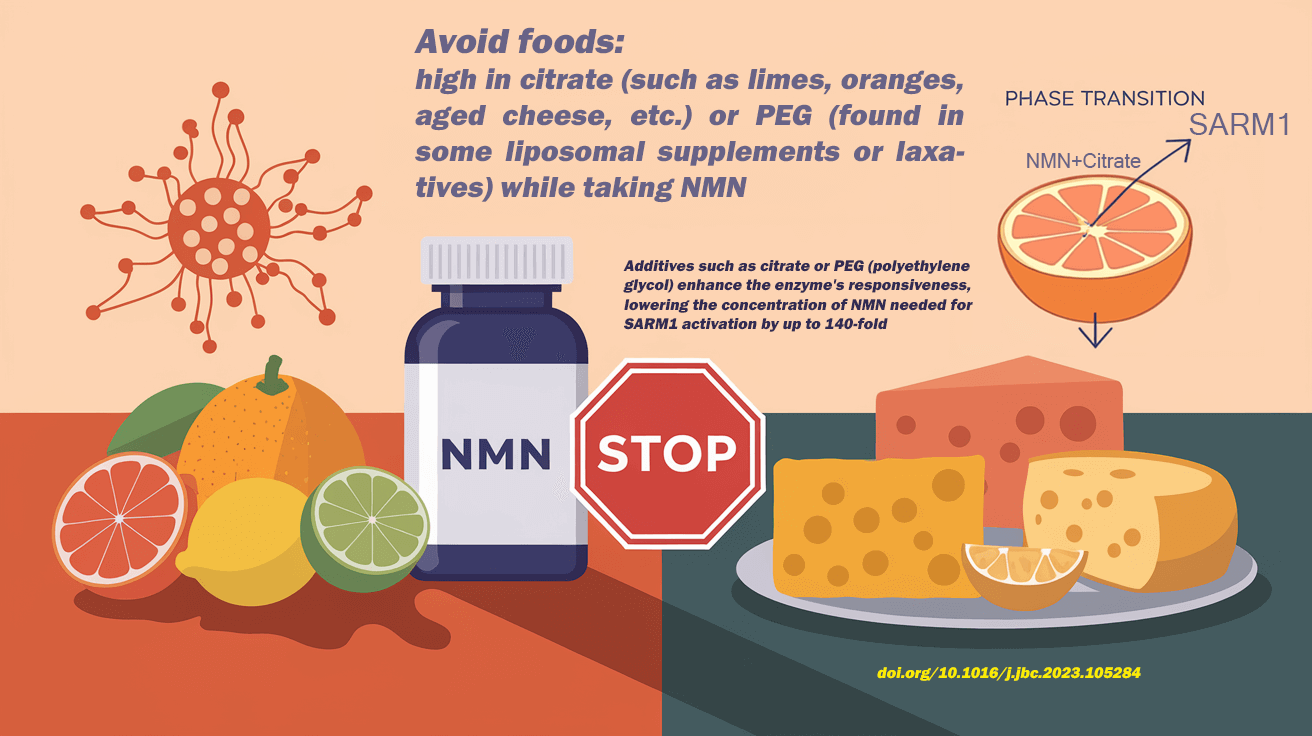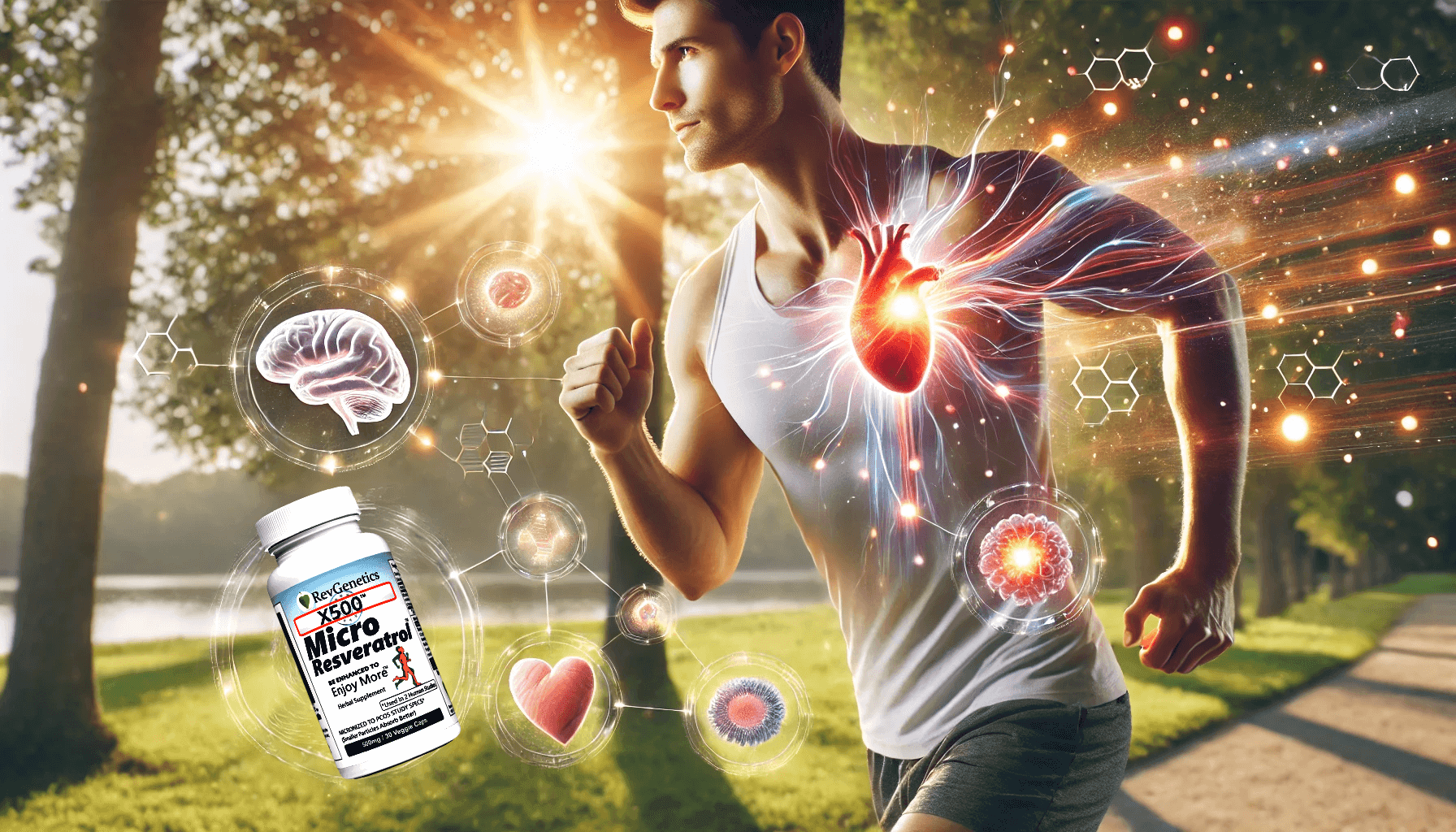Table of Contents
- Introduction to Spermidine and Brain Health
- What is Spermidine and Why It Matters for Your Brain
- The Science Behind Spermidine and Brain Protection
- Key Study: Spermidine in Vascular Dementia
- Other Health Benefits of Spermidine
- How to Get More Spermidine: Diet and Supplements
- Final Thoughts on Spermidine and Brain Health
- FAQs
How Spermidine Can Protect Your Brain from Age-Related Decline
How Spermidine Can Protect Your Brain from Age-Related Decline
By Anthony Loera | 04/06/2025
As we age, keeping our minds sharp becomes a priority, yet cognitive decline can threaten our independence and quality of life. Enter spermidine, a natural compound gaining attention for its potential to protect brain health and combat age-related decline. Found in foods like wheat germ and available as a supplement from companies like RevGenetics, spermidine may hold the key to maintaining memory and thinking skills. This article explores how spermidine works, its benefits for brain health, and the scientific evidence behind its promise, answering your top questions about this longevity molecule.
Introduction to Spermidine and Brain Health
Aging often brings memory lapses and slower thinking, challenges linked to the buildup of damaged proteins and inflammation in the brain. Spermidine, a polyamine present in all living cells, has emerged as a potential shield against these effects. Research suggests it could reduce inflammation, clear cellular waste, and support brain energy, making it a compelling option for those seeking to protect their cognitive health as they age.
What is Spermidine and Why It Matters for Your Brain
 Spermidine is a naturally occurring polyamine involved in essential cellular processes like growth, proliferation, and survival. It’s critical for autophagy, where cells recycle damaged components—a process that declines with age. As spermidine levels drop in older adults, this cleanup slows, potentially leading to cognitive decline. By boosting autophagy, spermidine may help maintain brain function, making it a vital player in aging well (Madeo et al., 2018).
Spermidine is a naturally occurring polyamine involved in essential cellular processes like growth, proliferation, and survival. It’s critical for autophagy, where cells recycle damaged components—a process that declines with age. As spermidine levels drop in older adults, this cleanup slows, potentially leading to cognitive decline. By boosting autophagy, spermidine may help maintain brain function, making it a vital player in aging well (Madeo et al., 2018).
The Science Behind Spermidine and Brain Protection
Spermidine protects the brain through three main mechanisms:
- Autophagy Induction: It triggers cells to remove toxic proteins, like those tied to Alzheimer’s, keeping neurons healthy (Madeo et al., 2018).
- Anti-Inflammatory Effects: It reduces chronic inflammation, a key driver of brain aging, by calming overactive immune cells.
- Mitochondrial Support: It enhances energy production in mitochondria, vital for brain cell survival and function (Schroeder et al., 2021).
These actions suggest spermidine could slow cognitive decline, especially in conditions like vascular dementia, where blood flow issues harm the brain.
Key Study: Spermidine in Vascular Dementia
A recent study, "Spermidine attenuates microglial activation, neuroinflammation, and neuronal injury in a rat model of vascular dementia" by Zhao et al. (2025), published in Neuroscience, offers compelling evidence. Researchers induced vascular dementia in rats and treated them with spermidine, finding it:
- Improved cognitive performance in memory and learning tasks.
- Reduced microglial activation, calming brain inflammation.
- Protected neurons from damage, preserving brain structure.
These findings highlight spermidine’s potential as a neuroprotective agent, particularly for vascular dementia, the second most common dementia type after Alzheimer’s (Zhao et al., 2025).
Other Health Benefits of Spermidine
Beyond brain protection, spermidine offers broader benefits for aging:
- Longevity: Animal studies link it to longer lifespans via autophagy (Madeo et al., 2018).
- Heart Health: It may improve cardiovascular function by reducing oxidative stress.
- Immune Support: It enhances immune responses, aiding disease resistance.
These effects make spermidine a versatile compound for overall health as we age.
How to Get More Spermidine: Diet and Supplements
 Wondering how to boost your spermidine intake? Here’s how:
Wondering how to boost your spermidine intake? Here’s how:
Dietary Sources of Spermidine
Spermidine-rich foods include:
- Wheat germ (high concentration)
- Soybeans
- Aged cheese
- Mushrooms
- Peas, broccoli, cauliflower
Eating these regularly can help, but levels vary, and aging reduces natural spermidine production.
Supplement Options
For a consistent dose, supplements like RevGenetics’ Spermidine 25mg offer convenience. Studies, like the SmartAge trial, used 0.9 mg/day with mixed cognitive results, suggesting higher doses might be needed for brain benefits (Wirth et al., 2022). Consult a doctor to find the right amount, as optimal dosages are still under study.
Here are answers to common questions about spermidine and its role in brain health:
- What is spermidine and how does it work in the body? Spermidine is a polyamine found in all cells, aiding growth and survival. It works by triggering autophagy, a cellular cleanup process that removes damaged parts, crucial for brain health as it declines with age (Madeo et al., 2018).
- How does spermidine benefit brain health? It reduces inflammation, clears toxic proteins via autophagy, and boosts mitochondrial energy, helping maintain memory and cognitive function in aging (Schroeder et al., 2021).
- Can spermidine prevent or delay cognitive decline in aging? Animal studies suggest yes, showing improved memory and reduced dementia symptoms, but human trials are mixed—some benefits seen at higher doses, though more research is needed (Wirth et al., 2022).
- What scientific evidence supports the use of spermidine for brain protection? A 2025 rat study showed it protects against vascular dementia by reducing inflammation and neuron damage, while human studies link higher intake to lower cognitive impairment risk (Zhao et al., 2025; Schroeder et al., 2021).
- How can I incorporate spermidine into my diet or supplement routine? Eat foods like wheat germ, soybeans, and aged cheese, or try supplements (e.g., RevGenetics’ 25mg). Start low and consult a doctor, as optimal doses for brain benefits are still unclear.
Final Thoughts on Spermidine and Brain Health
Spermidine holds promise for protecting your brain from age-related decline, with animal studies showing strong cognitive benefits and human data offering cautious optimism. Can it prevent cognitive decline? Possibly, especially in conditions like vascular dementia, but human trials suggest dosage matters. While foods and supplements provide accessible options, ongoing research will clarify its full potential. For now, adding spermidine to your routine—after consulting a healthcare professional—could be a smart step toward a sharper mind in later years.
References:
- Madeo, F., Eisenberg, T., Pietrocola, F., & Kroemer, G. (2018). Spermidine in health and disease. Science, 359(6374), eaan2788. https://www.science.org/doi/10.1126/science.aan2788
- Schroeder, S., Hofer, S. J., Zimmermann, A., et al. (2021). Dietary spermidine improves cognitive function. Cell Reports, 35(2), 108985. https://www.sciencedirect.com/science/article/pii/S2211124721002990
- Wirth, M., Schwarz, C., Benson, G., et al. (2022). Effects of spermidine supplementation on cognition and biomarkers in older adults with subjective cognitive decline: A randomized clinical trial. JAMA Network Open, 5(5), e2213875. https://jamanetwork.com/journals/jamanetworkopen/fullarticle/2792725
- Zhao, X., Li, D., Zhu, Z., et al. (2025). Spermidine attenuates microglial activation, neuroinflammation, and neuronal injury in a rat model of vascular dementia. Neuroscience. (In press, as per Scholar alert summary from attachment).








